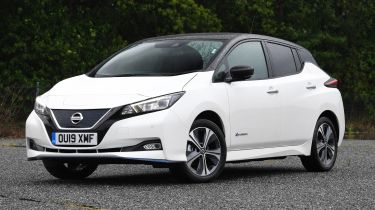Nissan Leaf hatchback - Reliability & safety
Electric cars should require less maintenance, but there are some questions surrounding the Leaf's reliability
In our latest 2023 Driver Power owner satisfaction survey the Leaf came in 42nd place, improving on its 63rd-place finish in 2022. Owners were least impressed by its exterior styling, infotainment system and interior quality, although it earned a third-place finish for its electric powertrain, with running costs rated fairly highly.
As a manufacturer, Nissan finished 19th in our Driver Power brand survey, with 19% of owners reporting a fault in the first 12 months.
Safety
It’s no surprise the Leaf scored the full five stars when crash-tested by Euro NCAP. Nissan has a good record here, with the previous Leaf managing a top rating and models like the popular Nissan Qashqai SUV following suit.
The Leaf also boasts Nissan's latest safety technology, including its autonomous ProPilot system, allowing the Leaf to accelerate, brake and stay in its lane. This can bring the car to a halt in traffic, and brushing the accelerator will also signal it to resume driving. Features such as blind spot monitoring and autonomous emergency braking (AEB) also come as standard to help make the Leaf as safe as possible.









